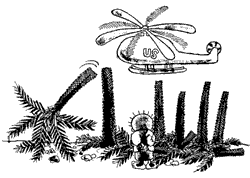|
|
||
| Report-51: Report From Baghdad" Part Four--Women in Iraq / Lee Siu Hin | ||


Part Four--Women in Iraq: Womens' Rights Are in Danger By: Lee Siu hin Another negative impact of the US-UK invasion has been to put women's rights in danger in the "new" Iraq. "On May 22 around 4:00 P.M. at Baghdad, nine-year-old girl "saba", was adducted from the stairs of the building where she lives, taken to an abandoned building nearby, and raped..." (Human Rights Watch Report: Climate of Fear, July 2003) According to a Human Rights Watch report Climate of Fear published in July 2003, as a result of the invasion, women and girls face increased sexual violence and abduction, which was almost unheard of during Saddam Hussein's regime. Elizabeth Hodgkin is Research Coordinator for Amnesty International in Baghdad. She says the violence against women and girls has created a state of fear, preventing them from being more active in the society. "It's certain women feel that now [after April], it is less safe for them on the street. There's been more killing; women feel more danger going back and forth from work and school, and participating in activities. Some girls have been withdrawn from school because their parents think it's unsafe in the streets," Hodgkin explains. An accurate count of women and girls victimized by sexual violence is very difficult to ascertain since many do not report such cases or even seek medical attention, according to Human Rights Watch. While the U.S. troika - its occupying forces, the Coalition Provisional Authorities (CPA) it runs, and its de facto government in Iraq - is busy securing Iraq's natural resources and hunting Saddam Hussein, the public security vacuum in Baghdad has heightened the vulnerability of women and girls to sexual violence and abduction. According to Hodgkin, there has been an acute rise in "honor killings" and domestic violence, once suppressed during the past regime, since the U.S. occupied Iraq last April. A woman becomes the victim of an "honor killing" when her family feels she has damaged their reputation by having sex with a man, or even just by going out with him. This dishonor "entitles" a male member of her family to "justifiably" murder her. "These crimes often go unreported, and even when they are reported, police rarely take any action. So a woman's life is expendable," Hodgkin explains. According to an Amnesty International investigation, there have been many "honor killings" in Iraq, the vast majority of which are unreported. There have been no investigations of the people alleged to have carried out these murders. Police have made no arrests. Hodgkin explains further, "If you do find a situation where a woman may have been raped, no matter what the circumstances, she runs the risk of being murdered by a male relative if she admits the incident to a family member. So if you think there's a possibility that a woman has been raped, you'd never go to her family to investigate the crime for fear of putting her in more danger." However, Hodgkin still remains optimistic about the role of women in the post-Saddam era. She says since April, there's been great boost of activity from all sectors in Iraqi society, including the formation of many civic and human rights organizations. Although women are underrepresented in these groups, Hodgkin reports there are organizations surfacing that have been formed by women and are run by women. "I think there is great hope for women's activism in the future. I think this is a period of transition, this is a period of change; [but] women are still unable to take their rightful position in the society." It's not very difficult to see male-domination in Iraq, even though it's considered one of the most socially open secular countries in the region. When I interviewed people on the street, males always dominated the speech, and women always stood aside. The rise of the Shi'ites in southern Iraq is affecting women's rights in the post-invasion period. Many worry that replacing Saddam's secular government with a fundamentalist Islamic government will undermine women's rights in the future Iraq. Hodgkin believes there must be positive efforts in every area to ensure that women do have positive positions. She says, for instance, in the Iraqi Interim Governing Council that was established in July, of the 25 members on the Council, only three are woman. Hodgkin believes there must be stronger efforts made to ensure the rights and the equality of women in the future constitution and governing body of Iraq. Sincerely Lee Siu Hin |
||